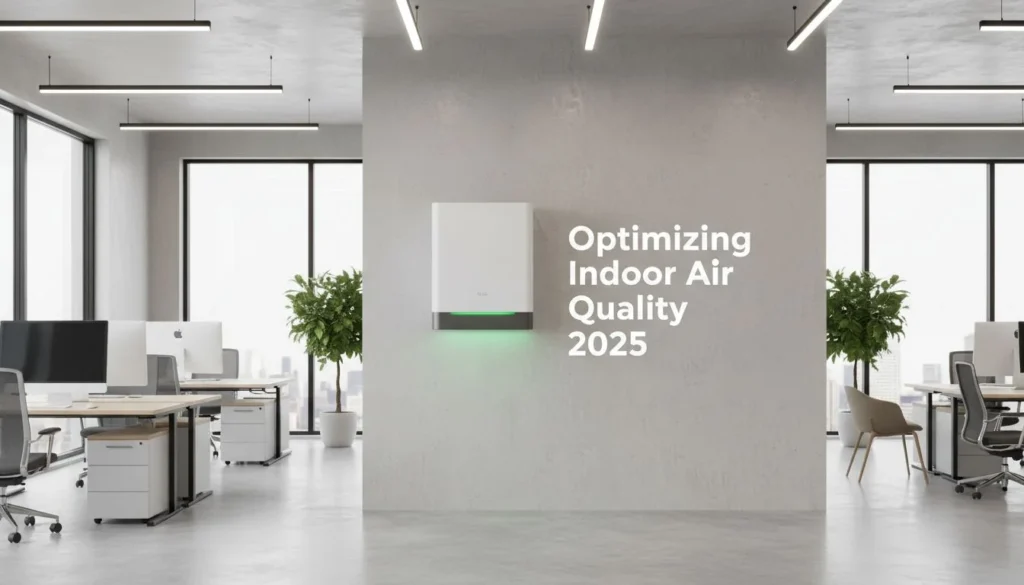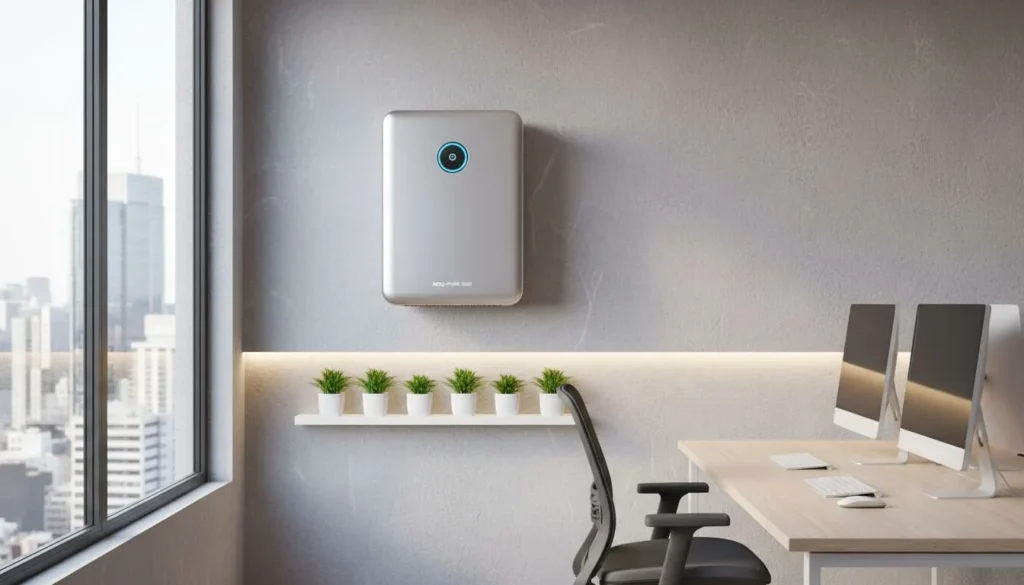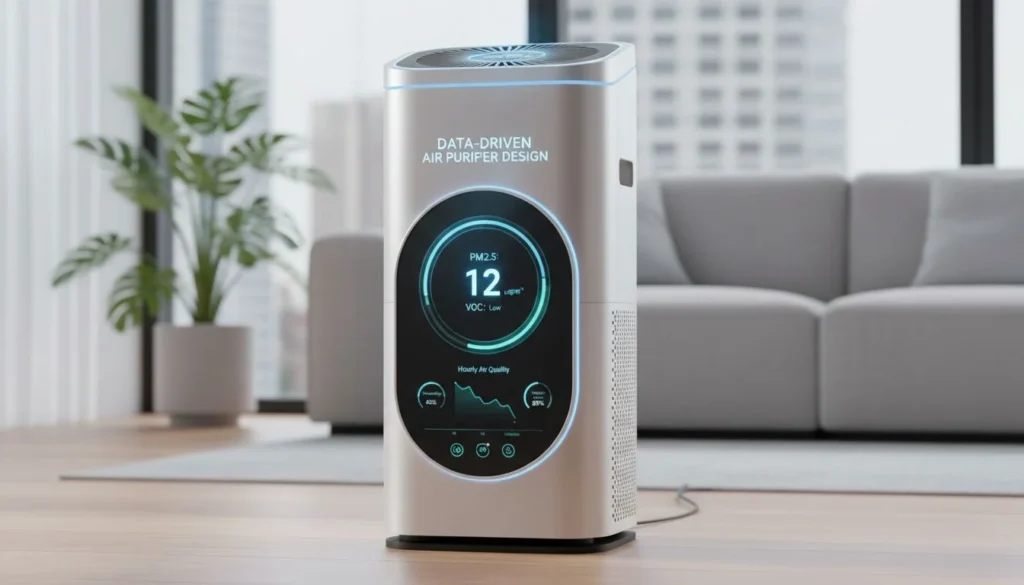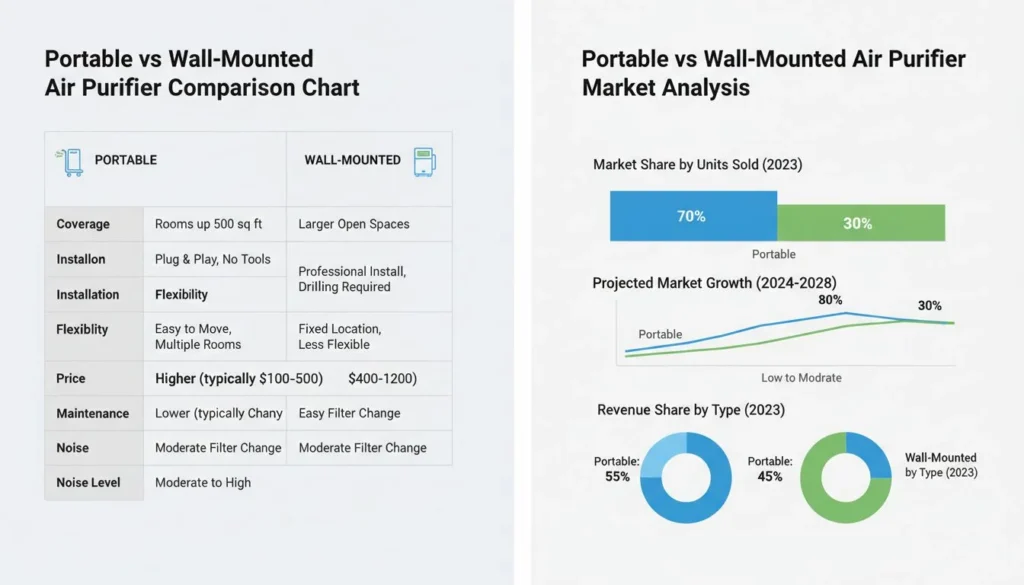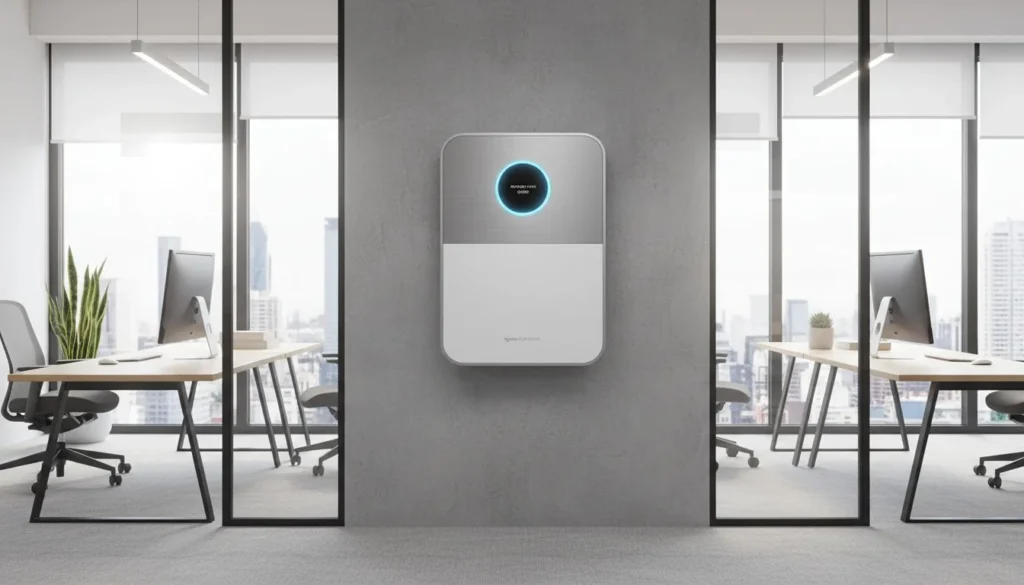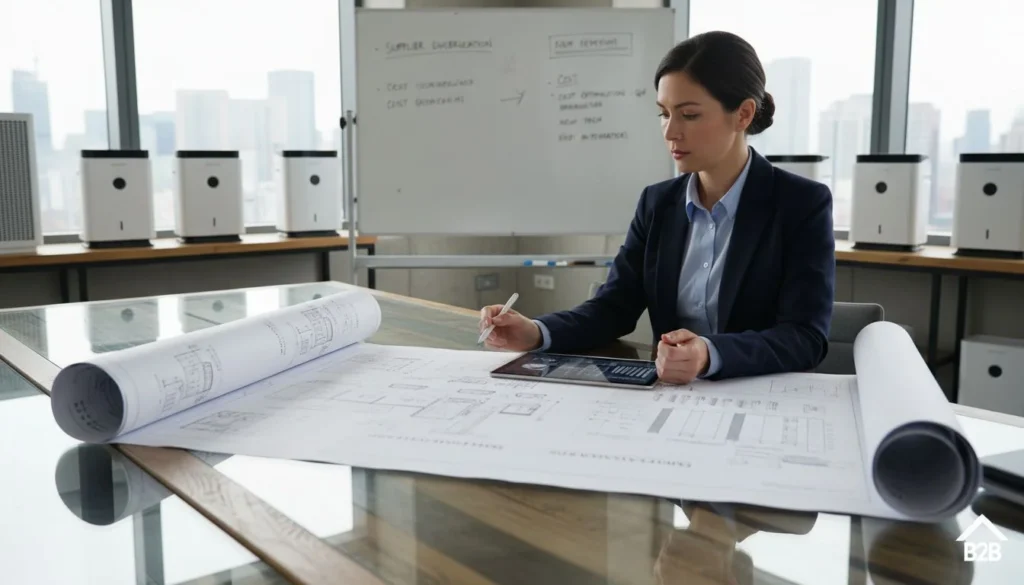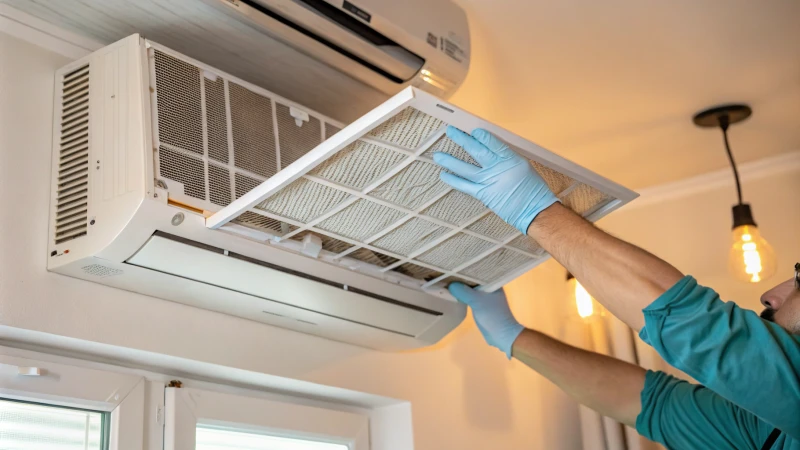
Haben Sie schon einmal darüber nachgedacht, dass sich die Luft in Ihrer Wohnung frischer anfühlt, nachdem Sie die HVAC Filter? Entdecken wir die einfachen Schritte, die dazu nötig sind!
So ändern Sie Ihre HVAC den Luftfilter der Anlage zu wechseln, schalten Sie die Anlage zunächst aus. Suchen Sie das Filterfach. Es befindet sich in der Regel in der Nähe des Einlasses oder des Gebläses. Nehmen Sie den alten Filter heraus. Setzen Sie einen neuen Filter ein. Überprüfen Sie die Pfeile auf dem Filter. Sie müssen mit der Richtung des Luftstroms übereinstimmen. Wenn Sie fertig sind, schalten Sie die Anlage wieder ein.
Ich erinnere mich an das erste Mal, als ich meine HVAC Filter. Es war, als würde man im Haus frische Bergluft atmen! Es ist sehr wichtig, den richtigen Filter zu wählen und zu wissen, wann er gewechselt werden muss. Erfahren Sie mehr über die verschiedenen Filtertypen und den richtigen Zeitpunkt für den Austausch. Halten Sie Ihre Luft frisch und klar. Wirklich frisch und knackig!
Der erste Schritt ist das Ausschalten der HLK-Anlage.Wahr
Das Abschalten der Anlage dient der Sicherheit und verhindert die Zirkulation von Staub.
Die Luftstromrichtungspfeile sind nicht wichtig.Falsch
Die Pfeile sorgen für eine korrekte Installation, die auf den Luftstrom ausgerichtet ist und so für Effizienz sorgt.
Warum sollten Sie regelmäßig Ihre HVAC Luftfilter?
Stellen Sie sich vor, Sie atmen weniger schwer, sparen Geld und verlängern die Lebensdauer Ihrer HVAC System durch häufiges Wechseln eines einfachen Luftfilters. Regelmäßiges Wechseln des Filters hilft wahrscheinlich in vielerlei Hinsicht.
Regelmäßiges Wechseln Ihrer HVAC Luftfilter hält die Raumluft sehr sauber. Diese Praxis verbessert die Effizienz des Systems erheblich. Außerdem werden dadurch die Energiekosten gesenkt. Saubere Filter verhindern die Verschmutzung von Innenräumen. Außerdem verlängern sie die HVAC das Leben der Einheit.
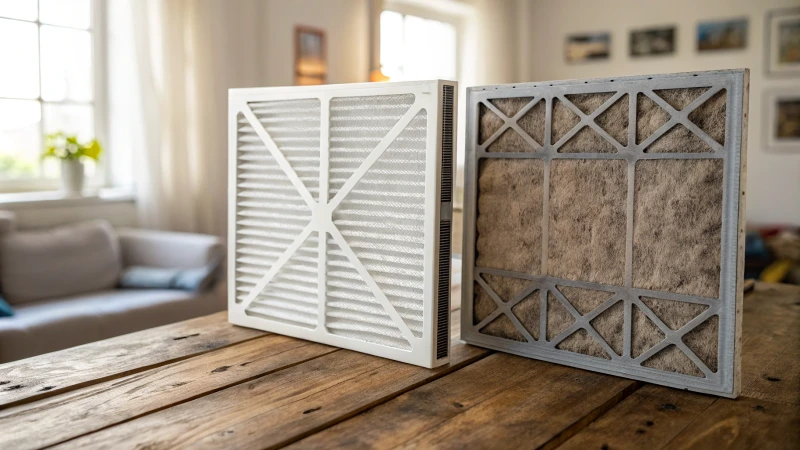
Die Rolle von Luftfiltern in Ihrem HVAC System
Einmal habe ich nicht meine HVAC Filter, und es hat mich viel gekostet. Filter halten Staub, Pollen und andere Partikel davon ab, in die Luft Ihres Hauses zu gelangen. Ein sauberer Filter hilft Ihrem System, reibungslos zu funktionieren. Ein verstopfter Filter macht es Ihrem System schwer HVAC um gut zu funktionieren. Das ist so, als würde jemand mit Gewichten an den Knöcheln einen Marathon laufen.
| Nutzen Sie | Beschreibung |
|---|---|
| Verbesserte Luftqualität | Entfernt Allergene und Staub aus der Luft und sorgt so für ein gesünderes Atmen. |
| System-Effizienz | Hält die HVAC System reibungslos funktioniert und den Energieverbrauch senkt. |
| Kosteneinsparungen | Verhindert teure Reparaturen und senkt die Stromrechnung durch Optimierung des Luftstroms. |
Gesundheitliche Vorteile von sauberen Luftfiltern
Frische, saubere Luft empfängt Sie, wenn die Filter gut funktionieren. Sie reduzieren Allergene, was besonders wichtig ist für Menschen mit Allergien oder Asthma1. Die Umstellung auf einen hocheffizienten Filter führte bei mir zu weniger Niesanfällen und einer leichteren Atmung. Die Veränderung war schnell und spürbar.
Energieeffizienz und Kostenauswirkungen
Die himmelhohen Energierechnungen verwirrten mich, bis ich herausfand, dass schmutzige Filter daran schuld waren. Ein regelmäßiger Filterwechsel führte zu niedrigeren Energiekosten. Dieser kleine Schritt führte zu großen Einsparungen und verhinderte die HVAC von Überarbeitung.
Denken Sie daran, sich alle drei Monate an die Überprüfung Ihrer Filter erinnern zu lassen. Dies ist eine einfache Maßnahme, die Geld für Reparaturen spart, da sie für einen reibungslosen Betrieb des Systems sorgt.
Die Wahl des richtigen Filters für Ihre Bedürfnisse
Filter sind nicht alle gleich; das habe ich aus Erfahrung gelernt. Das Verstehen der MERV Bewertung (Minimum Efficiency Reporting Value) ist entscheidend:
| MERV Bewertung | Filter Typ | Entfernung von Partikeln |
|---|---|---|
| 1-4 | Grundlegend | Pollen, Hausstaubmilben |
| 5-8 | Zwischenbericht | Schimmelsporen, Tierhaare |
| 9-12 | Überlegene | Bleistaub, Befeuchterstaub |
| 13-16 | Krankenhausqualität HEPA | Rauch, Bakterien, Virusträger |
Bessere Werte fangen mehr Partikel auf, können aber den Luftstrom blockieren, wenn Ihr System nicht stark genug ist.
Personalisierte Lösungen für jedes Haus
In Haushalten mit Haustieren wie dem meinen ist ein häufigerer Filterwechsel erforderlich, da sich mehr Partikel ansammeln. Die Investition in Hochleistungsfilter2 können in solchen Umgebungen zusätzliche Vorteile bieten, indem sie unerwünschte Partikel auffangen, die Unbehagen verursachen.
Durch regelmäßige Wartung bleibt Ihr HVAC Das ist eine echte Investition in die Gesundheit und den Seelenfrieden.
Der Wechsel von HLK-Filtern senkt die Energierechnung.Wahr
Saubere Filter sorgen für einen effizienten Systembetrieb und senken den Energieverbrauch.
Alle Filter haben den gleichen MERV-Wert.Falsch
Die Filter unterscheiden sich in ihren MERV-Werten, die verschiedene Filtrationsstufen angeben.
Welche Arten von Luftfiltern gibt es und welche sollten Sie wählen?
Die Suche nach Luftfiltern kann einem Irrgarten gleichen. Die Wahl des richtigen Filters verändert Ihr Zuhause. Er verwandelt es in einen Ort mit frischer und sauberer Luft. Vielleicht ist eine kluge Wahl sehr wichtig.
Luftfilter gibt es in verschiedenen Ausführungen, wie zum Beispiel HEPA, elektrostatisch und gefaltet. Jeder Typ hat einen anderen Wirkungsgrad. Die Wahl des richtigen Filters hängt von der Größe Ihrer Wohnung ab. Sie hängt auch von Ihrem Budget ab. Auch Ihre spezifischen Anforderungen an die Luftqualität spielen eine Rolle.
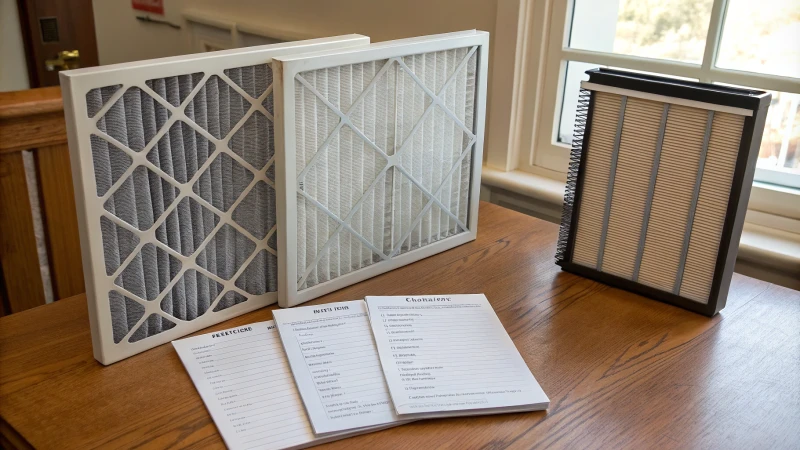
Arten von Luftfiltern: Ein Überblick
Ich weiß noch, wie ich zum ersten Mal merkte, dass mein Niesen mehr als eine Allergie war. Das öffnete mir die Augen für die Welt der Luftfilter. Hier ist, was ich entdeckt habe:
-
HEPA Filter: Diese Filter sind wie Superhelden für saubere Luft. Sie fangen winzige Dinge wie Staub, Pollen und Tierhaare auf. Sie sind ideal für Allergiker wie mich.
-
Elektrostatische Filter: Diese cleveren Filter fangen Partikel mithilfe statischer Elektrizität ab. Und das Beste daran? Viele sind waschbar und wiederverwendbar3Das spart mit der Zeit Geld.
-
Plissee-Filter: Sie bestehen aus Polyester oder Baumwolle und bieten eine größere Oberfläche zum Auffangen von Partikeln. Sie haben in der Regel hohe MERV Bewertungen, ideal für ernsthafte Anforderungen an die Luftqualität.
-
Aktivkohle-Filter: Riecht es in Ihrer Wohnung manchmal nach dem Abendessen von gestern? Kohlefilter helfen bei Gerüchen und Gasen. Sie behandeln diese wie Experten.
Verstehen MERV Bewertungen
MERV Die Bewertungen waren für mich zunächst verwirrend, aber sie sind eigentlich ganz einfach:
| MERV Bewertung | Beschreibung |
|---|---|
| 1-4 | Einfache Staub- und Flusenfilterung |
| 5-8 | Schimmelsporen, Hausstaubmilben, Tierhaare |
| 9-12 | Feine Partikel, besser für Allergiker |
| 13-16 | Luftqualität wie im Krankenhaus |
Wählen Sie Ihr MERV Bewertung unter Berücksichtigung Ihrer Bedürfnisse und häusliche Umgebung4.
Faktoren, die bei der Auswahl eines Luftfilters zu berücksichtigen sind
Meiner Erfahrung nach kommt es bei der Auswahl eines Luftfilters nicht auf die schickste oder teuerste Option an. Hier ist, worauf ich mich konzentriere:
- Anforderungen an die Luftqualität: Sind Sie mit Allergenen, Rauch oder allgemeinem Staub konfrontiert?
- Haushalt: Hochwertige Filter können mehr kosten, aber die besten sind nicht immer die teuersten.
- Wartung: Überlegen Sie, wie oft Sie Ihren Filter wirklich austauschen oder reinigen wollen.
Wenn Sie diese Punkte verstehen, werden Sie sehr wahrscheinlich die richtige Wahl für Ihren Lebensstil treffen. Wenn Sie unsicher sind, fragen Sie einen Experten Vergleiche5 kann mehr Einsicht bringen.
Ein regelmäßiger Wechsel des Filters verbessert nicht nur die Luftqualität, sondern hilft auch Ihrem HVAC System besser funktionieren. Die Kenntnis dieser Details trägt zur Verbesserung des Komforts und der Gesundheit in Ihrem Haus bei.
HEPA-Filter sind am besten für Allergiker geeignet.Wahr
HEPA-Filter fangen kleine Partikel wie Staub und Pollen wirksam ab.
Kohlefilter entfernen Partikel wie Staub und Pollen.Falsch
Aktivkohlefilter sind dafür ausgelegt, Gerüche und Gase zu entfernen, nicht aber Partikel.
Wie oft sollten Sie Ihren Luftfilter austauschen, um eine optimale Leistung zu erzielen?
Stellen Sie sich eine Welt vor, in der sich die Luft in Ihrem Haus wie eine frische Bergbrise anfühlt. Diese Frische beginnt mit einer einfachen Aufgabe. Die Menschen sollten ihre Luftfilter häufig wechseln. Sie fragen sich, wie oft das am besten geht? Lassen Sie uns das erkunden.
Um Ihre HVAC Damit das System optimal funktioniert, sollten Sie die Luftfilter alle 90 Tage wechseln. Haushalte mit Haustieren oder Allergikern sollten die Filter wahrscheinlich häufiger wechseln. Vielleicht alle 60 Tage. Frische und saubere Luft ist wichtig.
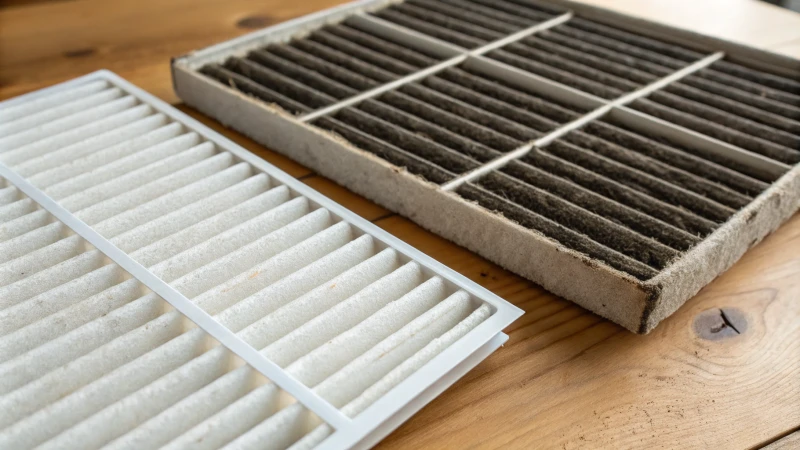
Faktoren, die die Häufigkeit der Ersetzung beeinflussen
Bei der Entscheidung, wann Sie Ihren Luftfilter wechseln sollten, geht es um mehr als nur darum, dass alles gut funktioniert. Es geht darum, dass sich Ihr Zuhause wie eine Oase der sauberen Luft anfühlt. Ich erinnere mich daran, als wir Max, unseren Golden Retriever, nach Hause brachten. Sein Fell ist überall, und das zwang uns, die Filter öfter zu wechseln. Haustiere wie Max scheiden Fell und Hautschuppen aus, die die Filter schnell verstopfen. Sie sollten darüber nachdenken, sie regelmäßiger auszutauschen.
| Zustand | Häufigkeit der Ersetzung |
|---|---|
| Standard-Heimat | Alle 90 Tage |
| Haus mit einem Haustier | Alle 60 Tage |
| Haus mit mehreren Haustieren | Alle 30-45 Tage |
Menschen mit Allergien oder Raucher in Innenräumen sollten die Filter ebenfalls häufig wechseln. Frische Filter fangen schädliche Partikel in der Luft ab, bevor sie Probleme verursachen.
Verstehen von Filtertypen
Die Wahl eines Filters ist wie die Wahl eines neuen Paares von Schuhen - viele Optionen, jede für unterschiedliche Bedürfnisse. Fiberglas-Filter6 sind wie Flip-Flops - billig und für kurze Zeit (etwa 30 Tage) gut. Faltenfilter bieten eine bessere Reinigung und halten 60 bis 90 Tage. HEPA Filter sind ideal für Allergiker wie meine Schwester, die gerne saubere Luft hat; sie können bis zu sechs Monate halten.
Spezielle Hinweise finden Sie in der Anleitung Ihres Herstellers. Nicht vergessen, verschiedene Filtertypen7 kann sich besser an Ihre häusliche Umgebung anpassen.
Auswirkungen der Vernachlässigung des Filterwechsels
Die Vernachlässigung dieser einfachen Aufgabe kann zu großen Problemen führen. Ich habe es auf die harte Tour erfahren, als unser HVAC Das System klang wie ein Ungeheuer. Ein verstopfter Filter war die Ursache des Problems. Ein verstopfter Filter lässt das System härter arbeiten, was zu höheren Energierechnungen und frühzeitiger Abnutzung führt.
Verschmutzte Filter bedeuten schlechte Luftqualität, und das ist eine schlechte Nachricht, wenn jemand zu Hause Atemprobleme hat. Die Überprüfung Ihres Filters schont nicht nur Ihre Gesundheit, sondern auch Ihren Geldbeutel. Vielleicht sollten Sie einen Erinnerungskalender einrichten oder intelligente Technologie nutzen8 um Ihren Zeitplan für den Austausch effektiv zu gestalten. So bleibt Ihr HVAC System effizient und bietet Ihnen das ganze Jahr über Sicherheit und saubere Luft.
In Haushalten mit Haustieren müssen die Filter alle 30-45 Tage gewechselt werden.Wahr
Tierhaare und Hautschuppen verstopfen die Filter schneller, so dass sie häufig gewechselt werden müssen.
HEPA-Filter müssen alle 30 Tage ausgetauscht werden.Falsch
HEPA-Filter bieten eine hervorragende Filtration für bis zu 6 Monate.
Woher wissen Sie, wann es Zeit ist, Ihren Luftfilter zu wechseln?
Haben Sie manchmal das Gefühl, dass die Luft in Ihrer Wohnung schwerer ist als die Bettdecke Ihrer Großmutter? Vielleicht ist es an der Zeit, den Filter zu überprüfen!
Wenn mehr Staub aufgewirbelt wird, der Luftstrom schwächer wird, seltsame Gerüche entstehen oder die Energierechnung in die Höhe schnellt, muss der Filter wahrscheinlich gewechselt werden. Neue Filter bedeuten eine sehr gute Luftqualität und funktionieren besser.
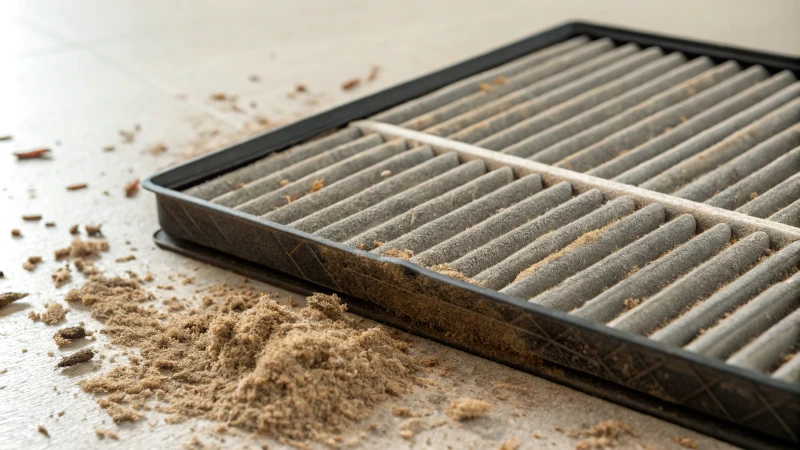
Erhöhte Staubbelastung und Allergene
Ich erinnere mich, wie ich jede Oberfläche in meinem Haus sauber wischte, nur um nach ein paar Tagen wieder Staub zu sehen. Es fühlte sich an, als wäre über Nacht ein heimtückischer Staub-Gremlin aufgetaucht. Aber es waren keine Kobolde. Es war ein verstopfter Luftfilter, der keinen Staub abfangen konnte. Wenn Sie zu Hause mehr Staub sehen oder häufiger niesen müssen, ist es wahrscheinlich an der Zeit Ihren Filter überprüfen9.
Reduzierter Luftstrom
Wenn sich ein Gewebe in der Nähe der Lüftungsöffnung überhaupt nicht bewegt, stimmt etwas nicht. Das ist mir passiert, als sich mein Wohnzimmer durch meine Klimaanlage wie eine Sauna anfühlte. Die Ursache? Ein mit Staub gefüllter Filter. Wenn Räume nicht kühl sind oder sich stickig anfühlen, ist es wahrscheinlich Zeit für prüfen Sie diesen Filter10.
| Schilder | Erläuterung |
|---|---|
| Erhöhte Staubbelastung | Mehr Staub auf Oberflächen nach der Reinigung |
| Reduzierter Luftstrom | Räume fühlen sich stickig an, Gewebetest schlägt fehl |
| Seltsame Gerüche | Muffige oder schimmelige Gerüche, die aus den Lüftungsöffnungen austreten |
| Höhere Energierechnungen | Steigende Kosten ohne erhöhte Nutzung |
Seltsame Gerüche
Ein muffiger Geruch kann den Eindruck erwecken, dass Sie ein nasses Handtuch irgendwo vergessen haben. Er deutet oft auf einen alten Luftfilter hin, der ausgetauscht werden muss. Feuchtigkeit lädt winzige Organismen ein, die zu schlechten Gerüchen führen. Der Wechsel des Filters hilft, diese zu entfernen unangenehme Gerüche11.
Höhere Energierechnungen
Letzten Monat hat mich meine Stromrechnung überrascht. Ich hatte keine großen Veränderungen vorgenommen, z. B. einen neuen Raum angebaut oder mehr Geräte benutzt. Die HVAC aufgrund eines verstopften Filters zu viel gearbeitet hat. Wenn die Rechnungen ohne ersichtlichen Grund steigen, überprüfen Sie Ihre Energieverbrauchstrends12.
Tipps zur routinemäßigen Wartung
Der Wechsel des Luftfilters alle 3 bis 6 Monate ist genauso wichtig wie die regelmäßige Zahnreinigung. Das beugt Problemen vor und hält die Luft frisch. Stellen Sie Erinnerungen auf Ihrem Telefon ein oder schreiben Sie es in Ihren Kalender. Wenden Sie sich an Fachleute für persönliche Beratung Wartungspläne13 falls erforderlich.
Erhöhte Staubentwicklung deutet auf einen verstopften Luftfilter hin.Wahr
Mehr Staub auf den Oberflächen nach der Reinigung deutet auf einen verstopften Filter hin.
Höhere Energierechnungen bedeuten immer einen verstopften Filter.Falsch
Steigende Rechnungen können nicht nur auf den Filter, sondern auch auf andere Faktoren zurückzuführen sein.
Schlussfolgerung
Erfahren Sie, wie Sie ganz einfach Ihre HVAC Sie erfahren, wie wichtig Luftfilter für die Luftqualität und die Effizienz des Systems sind, und erhalten Tipps für die Auswahl des richtigen Filters für Ihr Zuhause.
-
Untersucht, wie hocheffiziente Filter die Luftqualität in Innenräumen für Allergiker verbessern und ihr Wohlbefinden steigern können. ↩
-
Bietet Einblicke in die Auswahl von Hochleistungsfiltern und deren Auswirkungen auf Luftqualität und Systemeffizienz. ↩
-
Erfahren Sie, wie elektrostatische Filter gewaschen und wiederverwendet werden können und so eine kostengünstige Lösung für die Erhaltung der Luftqualität bieten. ↩
-
Informieren Sie sich über die verschiedenen MERV-Werte, um den besten Filter für Ihre spezifischen Anforderungen an die Luftqualität und Ihre Wohnumgebung zu finden. ↩
-
Erfahren Sie, wie sich die verschiedenen Luftfiltertypen in ihrer Leistung unterscheiden und welcher für Ihre Bedürfnisse am besten geeignet ist. ↩
-
Informieren Sie sich über die verschiedenen Luftfiltertypen, um den besten für Ihre Bedürfnisse auszuwählen. ↩
-
Erfahren Sie, wie Haustiere die Lebensdauer von Luftfiltern beeinflussen und welche Anpassungen erforderlich sind, um die Luftqualität in Innenräumen zu erhalten. ↩
-
Erfahren Sie, wie Smart Home-Geräte die HLK-Wartung vereinfachen und die Effizienz verbessern können. ↩
-
Verstehen Sie, wie sich Staubablagerungen auf die Filtereffizienz auswirken und wann sie einen Austausch erforderlich machen. ↩
-
Erfahren Sie, wie Sie mit Hilfe von Schnelltests feststellen können, ob Ihr HLK-System die Luft richtig zirkulieren lässt. ↩
-
Entdecken Sie die häufigsten Ursachen für Gerüche im Zusammenhang mit HLK-Anlagen und wie sie mit dem Filterzustand zusammenhängen. ↩
-
Erfahren Sie, wie verstopfte Filter zu höheren Energiekosten führen können. ↩
-
Lassen Sie sich von Experten beraten, wie Sie einen regelmäßigen Zeitplan für die Filterwartung festlegen. ↩


